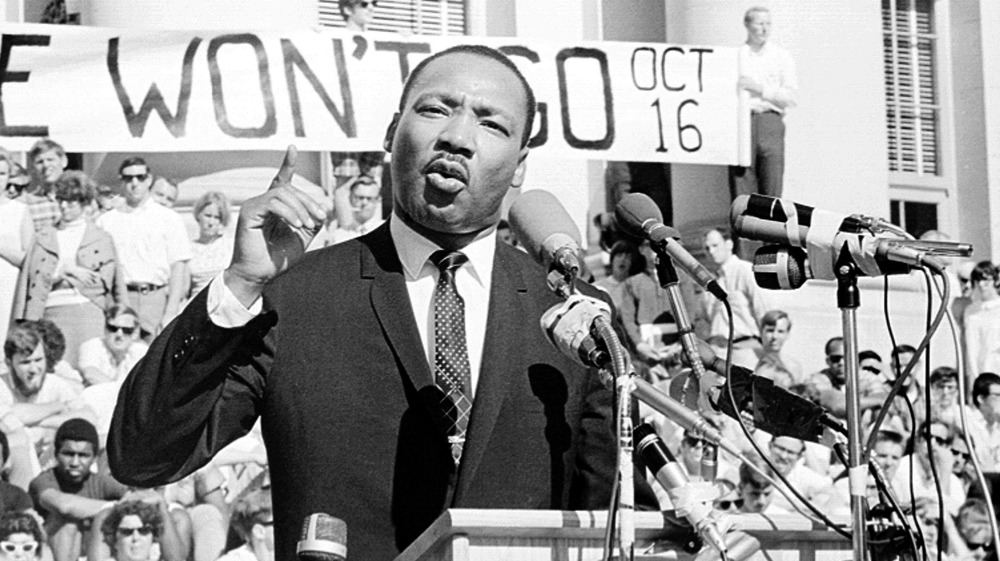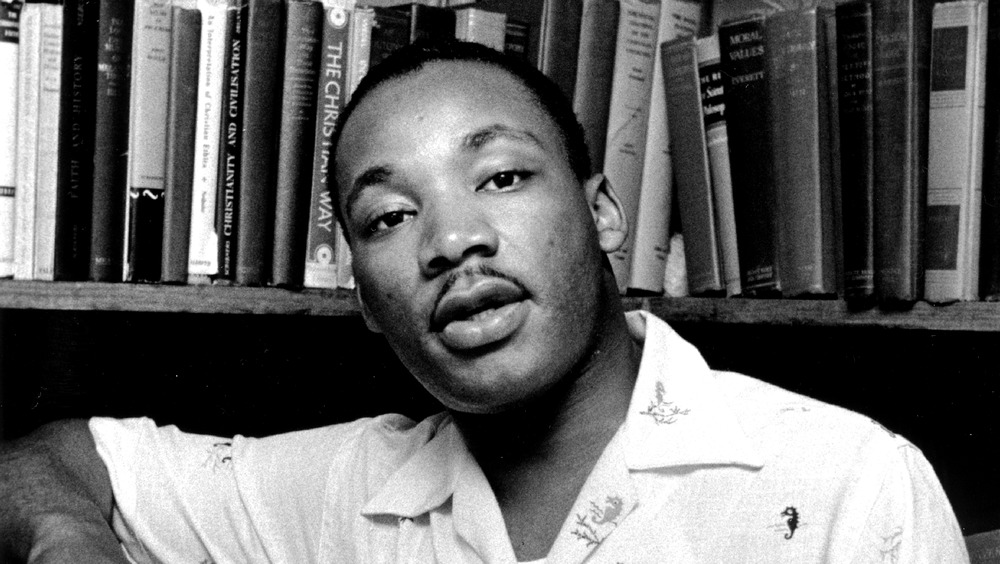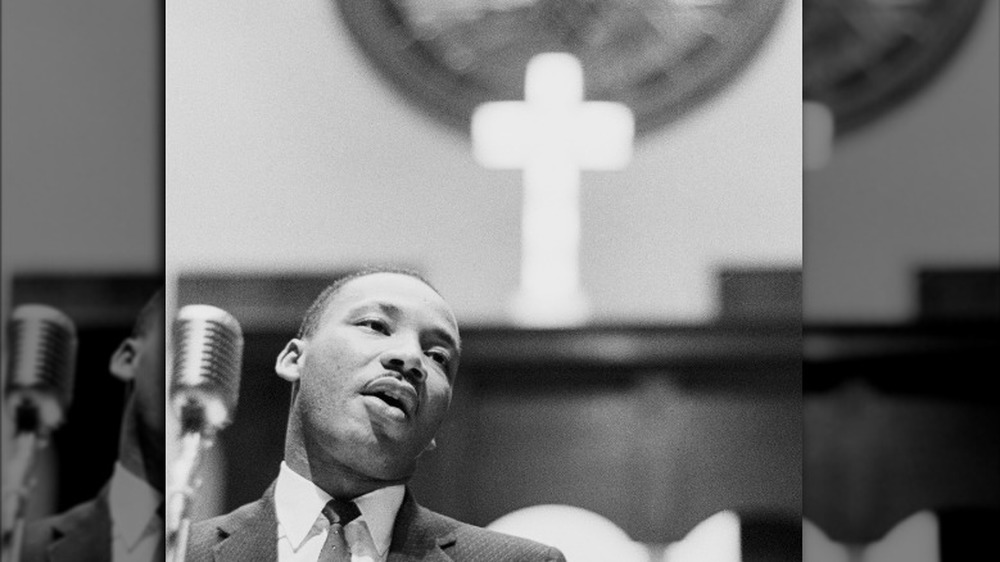Details You Didn't Know About Martin Luther King, Jr.
Dr. Martin Luther King, Jr. is remembered for his dream of a world of racial, social, and economic equality and for his doctrine of nonviolent civil disobedience as a means to achieve that equality. His legacy is honored every year on the third Monday in January, which falls around his birthday on the 15th. But it was a long, tireless struggle for advocates of King's memory before it finally became a holiday. Although a bill to create the holiday was brought before Congress just four days after his death, that dream wasn't achieved for another 32 years.
And did you know that the only other American whose birthday is honored as a national holiday is George Washington? That's probably not the only thing you didn't know about Martin Luther King, Jr. While the salient details of King's life, such as his iconic "I have a dream" speech, are now canonical in the country's popular history, there's much more to the man than you probably know.
For example, his name at birth wasn't Martin, but Michael King, Jr. According to History.com, his father, Michael, a Baptist pastor, changed his own name after he made a trip to Germany and was moved by the story of the leader of the Protestant Reformation, Martin Luther. He changed his son's name to Martin as well when the child was just five years old.
With MLK day just around the corner, let's take a look at the other aspects of King's life that have gone under the radar since his death.
Martin Luther King Jr. was a genius
The Atlanta Business Chronicle called King a genius for his "togetherness, optimism, and persistence," but he wasn't just wise beyond his years; he was an actual genius who was such an exceptional student that he almost skipped high school entirely. According to Biography, he didn't even bother with grades nine or 11, and enrolled in Atlanta's Morehouse College at just 15 years old. He was the kind of student who is so beyond the level of his other classmates that he was bored, drifting, unmotivated, through his first two years there. Although as a younger man he had not wanted to follow in his father's clerical footsteps, a Bible class in his junior year caused a revival of faith in him, and by his final year at the college, he was ready to tell his dad that he also wanted to go into the ministry.
He graduated with a sociology degree in 1948 and went on to study at the Crozer Theological Seminary in Pennsylvania, where he graduated valedictorian in 1951. He had his Ph.D. from Boston University by the time he was just 25 years old. One of his biggest influences during his formative years was his relationship with Morehouse College President Benjamin E. Mays, an ardent proponent of racial and social justice. Through Mays, King learned how Christianity, under the tenets it professes, could be an instrument for creating the changes he wanted to see in the world.
Martin Luther King Jr. was an ardent opponent of the Vietnam War
King's sense of the justice inherent in Christianity made him speak out against injustice in U.S. foreign policy, as well as racial inequality. In a speech given at Riverside Church in New York City in April 1967 — the full text has been posted online by Stanford University's Martin Luther King Jr. Research and Education Center – King called the United States "the greatest purveyor of violence in the world today." He saw the Vietnam War as "an enemy of the poor," as the country's poor were the ones dying in disproportionately high numbers compared to those of other social classes. He said that while some may have been surprised at him, a civil rights leader, taking up the anti-war charge, his stance on the war clearly came within the scope of his morality as a Christian.
King viewed the war as "but a symptom of a far deeper malady within the American spirit" and said that "if we ignore this sobering reality, we will find ourselves organizing 'clergy and laymen concerned' committees for the next generation." In 2019, Time magazine called this statement "prophecy [that] connects the war in Vietnam with our forever wars today, spread across multiple countries and continents, waged without end."
Unfortunately, with racial justice still drawing people to the streets today and decades-long wars in Afghanistan, Yemen, Iraq, and elsewhere, it appears that we must continue King's work well into the 21st century.


